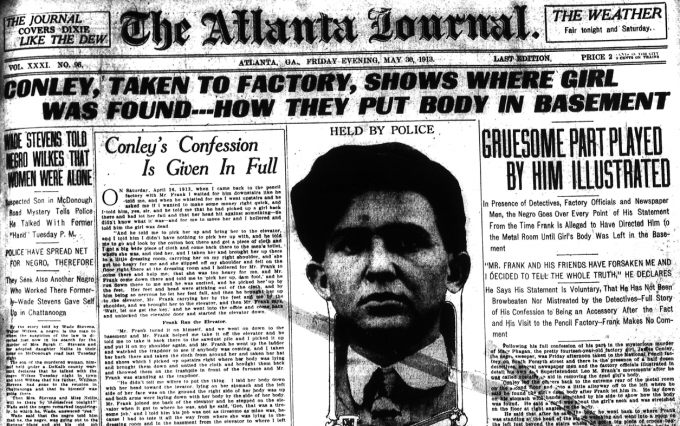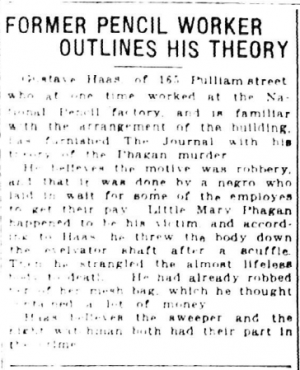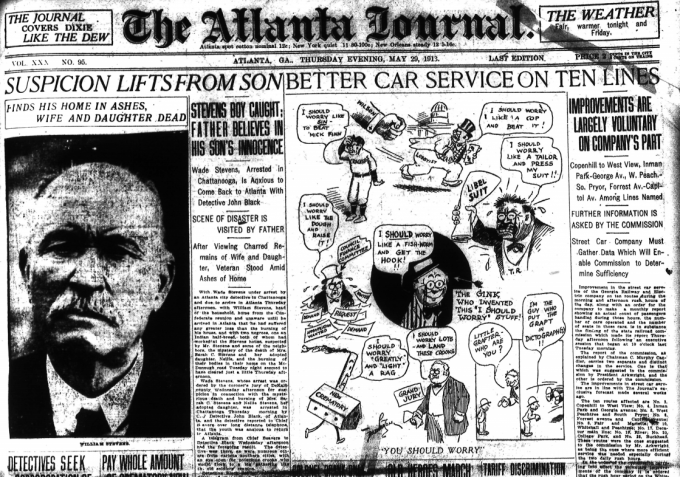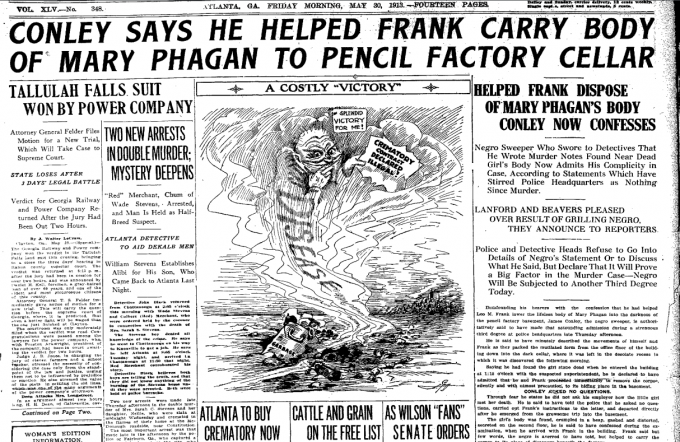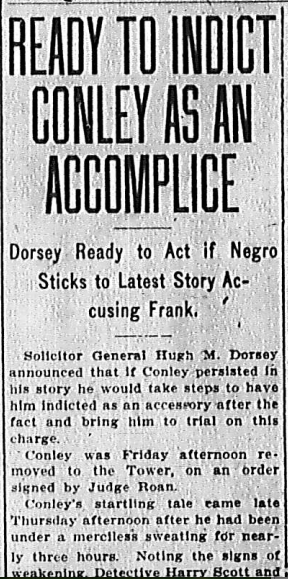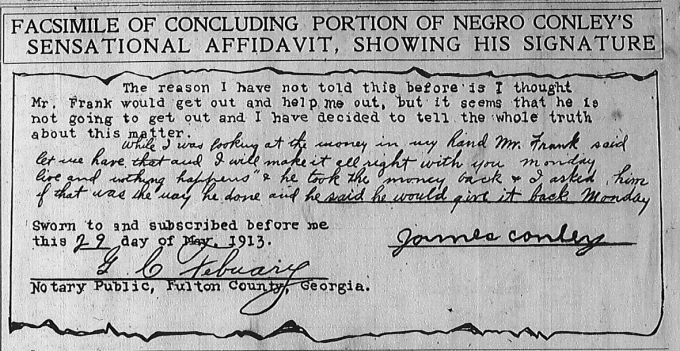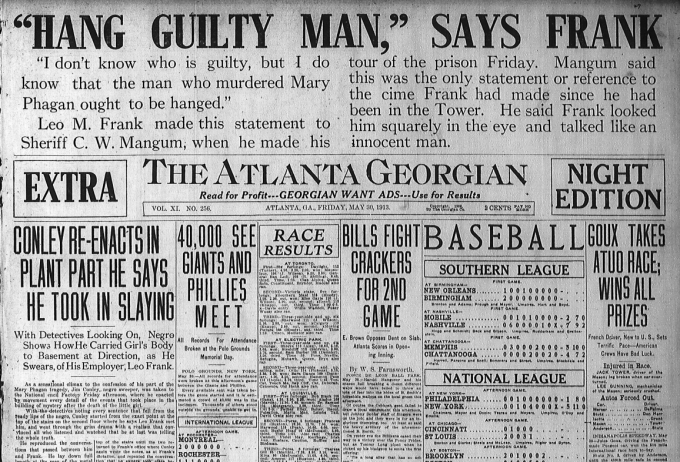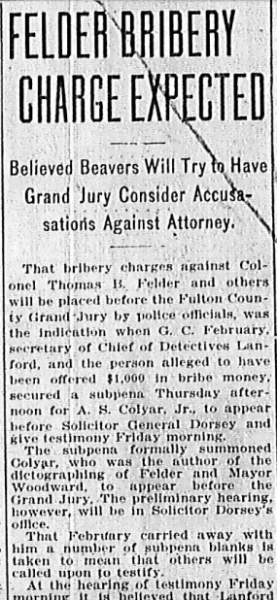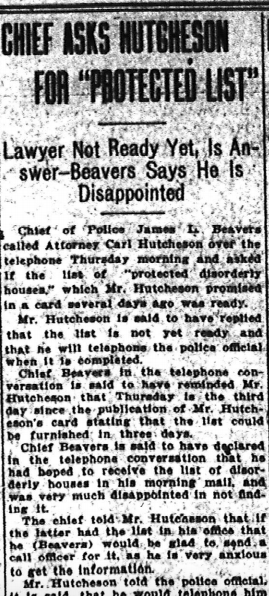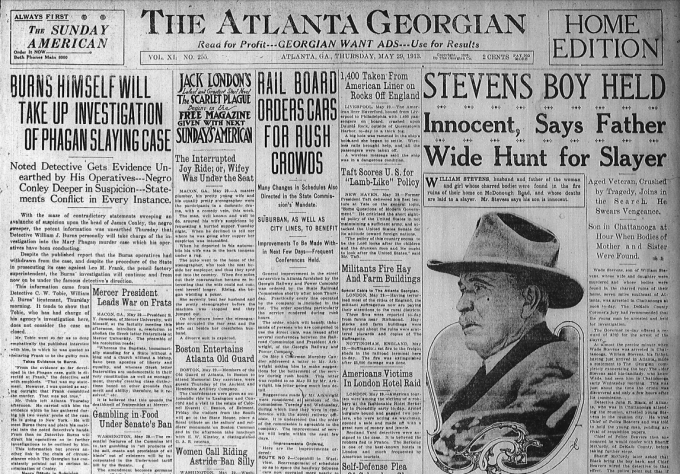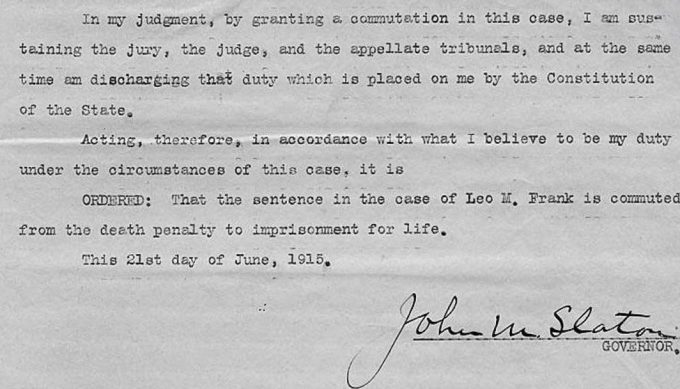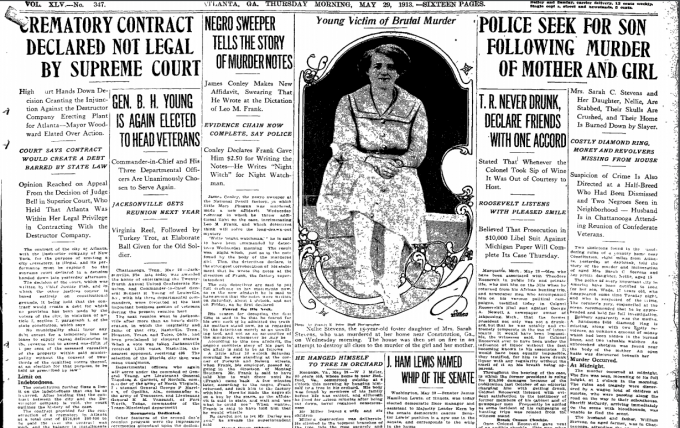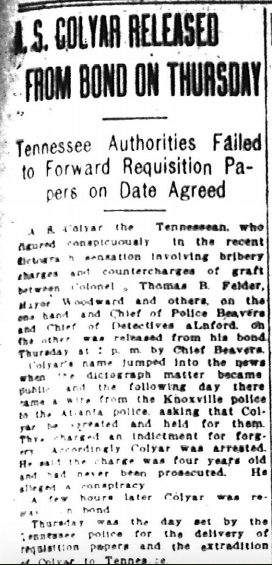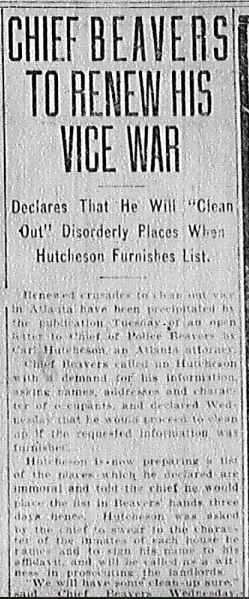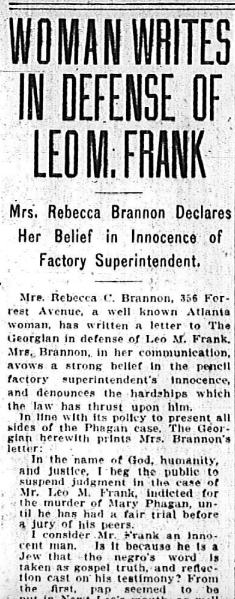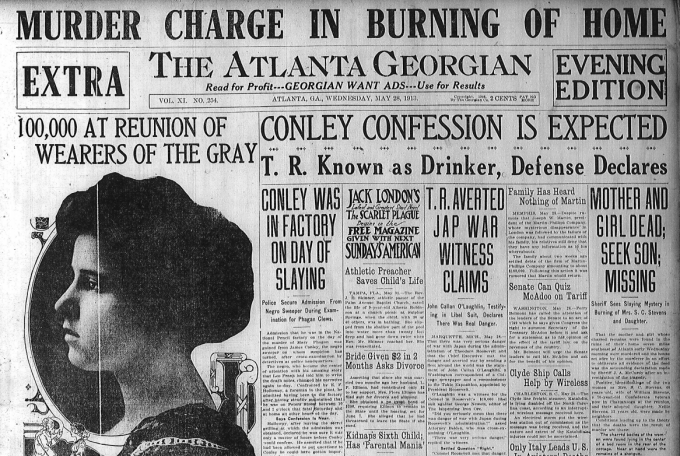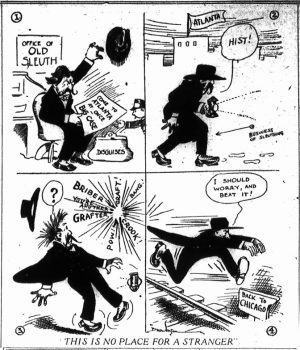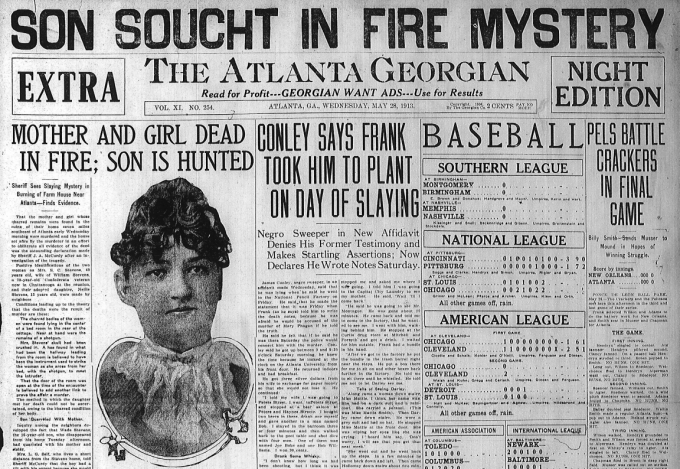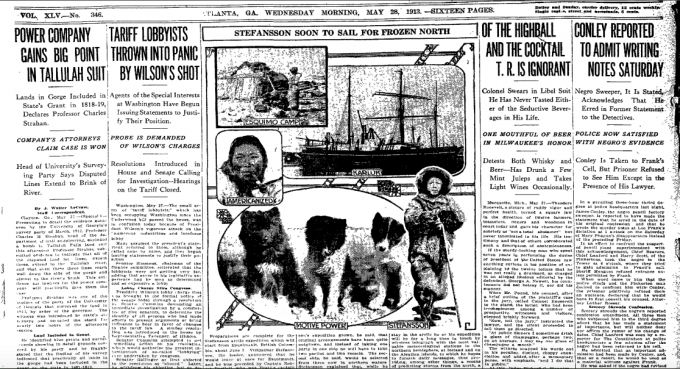Another in our series of new transcriptions of contemporary articles on the Leo Frank case.
Atlanta Journal
Friday, May 30th, 1913
Gruesome Part Played By Him Illustrated
In Presence of Detectives, Factory Officials and Newspaper Men, the Negro Goes Over Every Point of His Statement From the Time Frank is Alleged to Have Directed Him to the Metal Room Until Girl’s Body Was Left in the Basement
“MR. FRANK AND HIS FRIENDS HAVE FORSAKEN ME AND I DECIDED TO TELL THE WHOLE TRUTH,” HE DECLARES
He Says His Statement Is Voluntary, That He Has Not Been Browbeaten Nor Mistreated by the Detectives—Full Story of His Confession to Being an Accessory After the Fact and His Visit to the Pencil Factory—Frank Makes No Comment
Following his full confession of his part in the mysterious murder of Mary Phagan, the pretty fourteen-year-old factory girl, James Conley, the negro sweeper, was Friday afternoon taken to the National Pencil factory on South Forsyth street and there in the presence of a half dozen detectives, several newspaper men and the factory officials illustrated in detail his own and Superintendent Leo M. Frank’s movements after he was called upstairs to aid in removing the dead girl’s body.
Conley led the officers back to the extreme rear of the metal room on the second floor and into a little alleyway off to the left where he said he found the girl’s dead body after Frank let him in. He lay down on his stomach with his hands stretched by his side to show how the body was found. He said a cord was about the girl’s neck and was stretched on the floor at right angles to the body.
He said that after he saw the body he went back to where Frank was standing at the head of the stairs watching and went into a room on the left just beyond the stairs where he got a big piece of crocus-bagging; that he took this bagging back and tied the girl’s body up in it much after the fashion a washerwoman tied up her soiled clothes; that he then took the body on his right shoulder and started up toward the elevator in the front (Frank remaining at the head of the stairs and just outside the double doors to the metal room all the while.)
Conley declared that when he had walked half way up the room the body slipped off his shoulder to the floor. (This was the place where the bloodspots were found and where it has hitherto been believed the girl was murdered.) Continue Reading →

